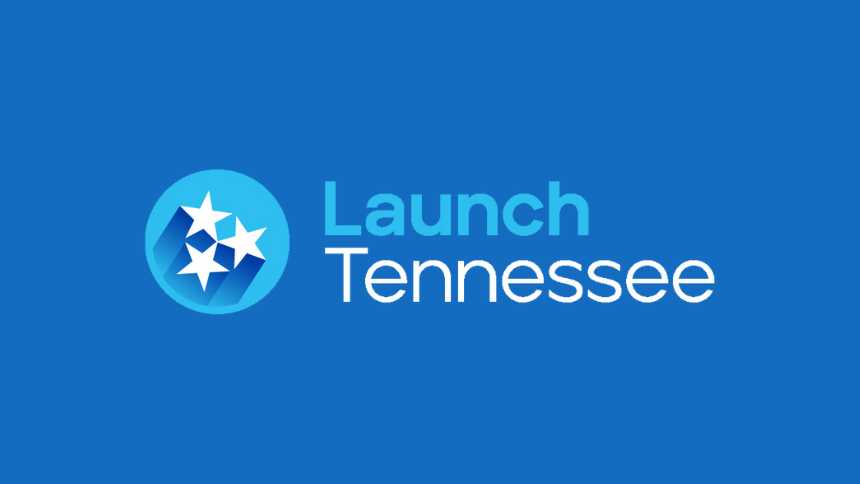
Launch Tennessee deems first year of the Tennessee Technology Advancement Consortium a success
The program's building blocks are ideation, technology development, and commercialization. The priority in the pilot year was on the first area.
After a successful pilot year with three universities participating, Launch Tennessee (LaunchTN) is preparing to add a few more locally-governed institutions to its Tennessee Technology Advancement Consortium (TTAC).
“Our pilot year, in partnership with The University of Memphis, Tennessee State University, and Tennessee Technological University, has demonstrably proven the value of the TTAC model in developing the university technology pipeline,” said Lindsey Cox, Chief Executive Officer of LaunchTN.
Starting from a base of 59 patented technologies at the three pilot participants, the goal, described as ambitious, was 30 new invention disclosures. That was more than achieved with 36 disclosures, 20 percent above the target and an 88 percent jump from previous years. Of those, 21 were deemed sufficiently promising technologies to be submitted for commercial evaluation, 12 technologies advanced to professional technology assessments, and three are being advanced with TTAC filing its inaugural provisional patent for one of the inventions.
The program, which is also supported by the Volunteer State’s two university-based technology transfer leaders – UT Research Foundation and Vanderbilt University’s Center for Technology Transfer & Commercialization, seeks to help locally-governed institutions leverage their research and further contribute to the state’s innovation economy.
As noted in the report that summarizes the pilot year, LaunchTN says that operating a tech transfer enterprise can cost a minimum of up to $1.3 million a year. That is not feasible for universities that are not generating dozens of invention disclosures annually.
We had the opportunity to chat recently with Chuck Layne, Senior Technology Advancement Manager at LaunchTN who also serves as TTAC Program Director, and Jennifer Skjellum, TTAC Associate Director for University Engagement and the Commercialization Counselor at the University of Tennessee (UT) at Chattanooga.

Layne explained that, after identifying access to technology transfer and commercialization support as a need for regional universities, that the leadership at LaunchTN asked how could they support building the infrastructure needed to ensure that the next generation of technologies and start-up companies are coming from all Tennessee research institutions. Through the pilot, LaunchTN aimed to address the key questions: “Can our ecosystem do this? Will it work? Is it a good idea?”
After the pilot year, the answer is yes – “the model can work,” Layne says, and, with renewed funding, TTAC will be able to serve additional universities and provide further faculty innovation resources this year.
For some of the answers, LaunchTN turned in part to a model developed by Kentucky Commercialization Ventures. The team adopted but also adapted the lessons learned in the Bluegrass State to Tennessee while also looking at models from other states.

The TTAC building blocks are ideation, technology development, and commercialization. In the pilot year, the priority was placed on the first building block, hence the emphasis on invention disclosures – getting intellectual property (IP) properly disclosed. In the second year, more emphasis will be placed on technology development and eventually the commercialization of promising inventions.
The decision to launch TTAC was announced in early September 2023, about the same time RTI International delivered its report to LaunchTN that compared Tennessee to other states with which the Volunteer State routinely competes. Titled “Scaling Up . . . Benchmarking and Recommendations for Growing Tennessee’s Tech-Based Economy,” the report included two key findings and four broad recommendations.
The findings were:
- Tennessee is significantly lagging leaders in peer states in several key areas vital to turning new ideas and technologies into new products including: (1) employment by high-tech firms; (2) commercialization of university research; (2) patent output; and (4) private sector R&D expenditures; and
- Tennessee’s investment in TBED (technology-based economic development) infrastructure has fallen behind most peer states in the Southeast and upper Midwest.
The recommendations were:
- Increase TBED investment to match the level of effort of regional peers;
- Strengthen the research commercialization to product pipeline;
- Expand access to growth capital; and
- Enhance statewide coordination of TBED.
Both Layne and Skjellum noted that one of the surprising conclusions from their interactions with 521 faculty, students, and administrators during the pilot period was the perception of the driver for technology transfer.
“Commercialization is a foreign concept,” they both said. “Many think it is just about the money. We emphasize the societal benefit as well as how it translates into the classroom experience for their students.”
The three pilot universities executed collaborative agreements with LaunchTN that committed them to:
- Designate a Commercialization Counselor to oversee the promotion and execution of commercialization activities on campus;
- Share university technologies with commercial potential to TTAC; and
- Participate in the TTAC community of practice and reporting on campus commercialization activities.
LaunchTN agreed to:
- Provide matching funds to support dedicated TTAC personnel, Commercialization Counselors, and efforts to promote campus commercialization activities;
- Contract for legal and other services required for IP evaluation, back office technology transfer support, and protection of commercially viable technologies;
- Offer technical assistance and education to support Commercialization Counselors at participating institutions; and
- Provide the services of a TTAC University Advisor with successful experience in advancing campus commercialization activities.
Going forward, LaunchTN will: (1) expand the TTAC network; (2) invest in technology development; and (3) build an IP education network.
Like what you've read?
Forward to a friend!

